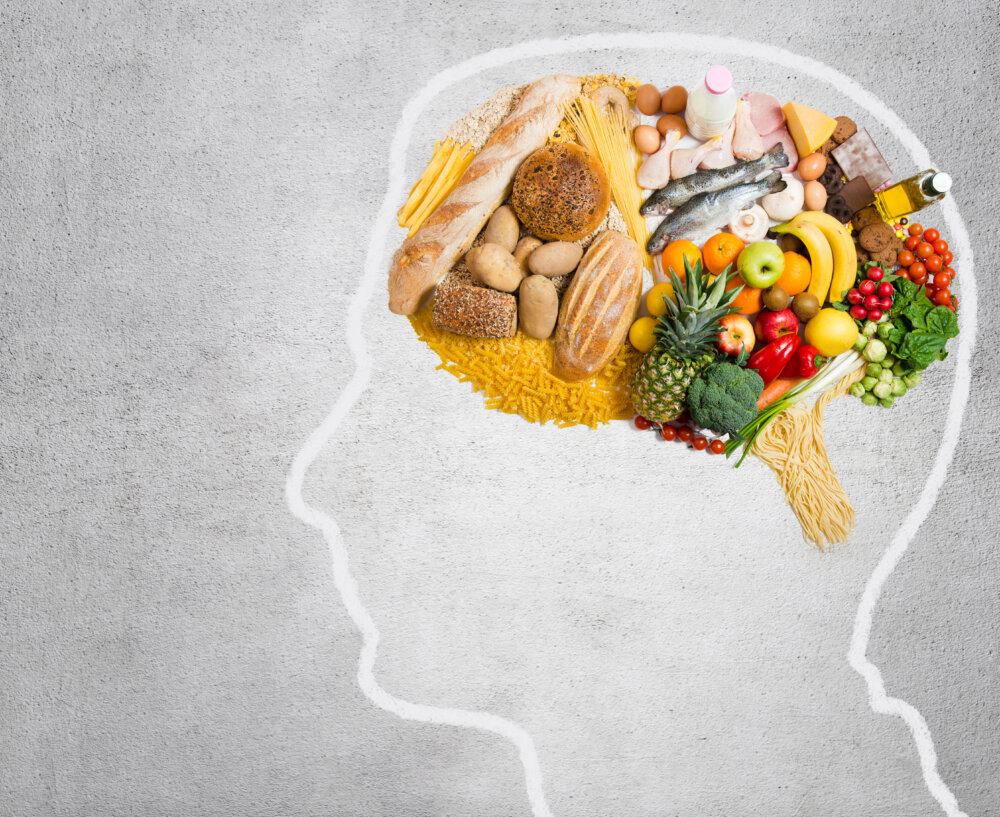Unlocking the secret to nourishing people living with dementia: A comprehensive guide
Let’s talk about nourishing people living with dementia!

The importance of nutrition and hydration for people living with dementia.
Dementia is a condition that affects millions of individuals worldwide, and providing proper care and nourishment for those with dementia is essential for their overall well-being. In this comprehensive guide, we will unlock the secret to nourishing people with dementia by exploring various techniques, tips, and strategies. From creating a dementia-friendly environment to understanding the importance of nutrition and hydration, this guide will provide you with the knowledge and tools to ensure the well-being and happiness of your loved ones with dementia. I hope that you may find some new ideas on how to make a positive difference in the life of someone with dementia.

Why is it important to focus on the persons nutrition?
When it comes to people with dementia, focusing on their nutrition is of utmost importance. Proper nutrition plays a significant role in maintaining their overall health and well-being. Here are a few reasons why nutrition should be a primary focus:
- Maintaining cognitive function: The brain requires a steady supply of nutrients to function properly. By providing a balanced and nutritious diet, we can support brain health and potentially slow down the progression of cognitive decline.
- Preventing malnutrition: Dementia can often lead to difficulties in eating and swallowing, which increases the risk of malnutrition. Malnutrition can have severe consequences on the physical and mental health of individuals with dementia, making it crucial to ensure they receive adequate nourishment.
- Supporting physical health: Good nutrition is vital for maintaining physical health and preventing other health issues. People with dementia may have an increased susceptibility to infections, so a well-balanced diet that includes essential nutrients can boost their immune system and help prevent illnesses.
- Enhancing mood and behaviour: Proper nutrition can also have a positive impact on mood and behaviour. Studies have shown that certain nutrients, such as omega-3 fatty acids and B vitamins, can support mental well-being and potentially reduce symptoms of depression and agitation in people with dementia.
- Improving quality of life: Providing a nutritious diet tailored to the specific needs of individuals with dementia can greatly enhance their overall quality of life. Ensuring they receive the right nutrients can increase their energy levels, improve their physical functioning, and promote a sense of well-being.
It is important to consult with healthcare professionals, such as dieticians or nutritionists, to develop a personalised nutrition plan that takes into account any dietary restrictions, preferences, or specific challenges related to dementia. By prioritising nutrition, we can contribute to the overall health and happiness of people living with dementia.

The key components of a nutritious diet that can support their overall health and well-being
Now that we understand the importance of focusing on nutrition for people living with dementia, let’s delve deeper into the key components of a nutritious diet that can support their overall health and well-being. By incorporating these elements into their meals and snacks, we can provide the essential nourishment needed to enhance their quality of life.
- Balanced Meals: A balanced diet is essential for people with dementia as it provides the necessary nutrients for their body and brain to function optimally. Incorporating a variety of food groups such as fruits, vegetables, whole grains, lean proteins, and healthy fats can help meet their nutritional needs. It is important to consult with a healthcare professional to determine the specific dietary requirements and any restrictions that may apply to the individual.
- Adequate Hydration: Hydration is crucial for everyone, including people with dementia. Dehydration can lead to various health complications and exacerbate cognitive impairment. Encouraging regular fluid intake throughout the day can help prevent dehydration. Offering a variety of liquids such as water, herbal teas, fruit-infused water, and soups can make hydration more enjoyable and appealing.
- Nutrient-Dense Foods: Including nutrient-dense foods in the diet can provide individuals with dementia the essential vitamins, minerals, and antioxidants they need for optimal health. Incorporating colorful fruits and vegetables, whole grains, lean proteins, and healthy fats can help support their overall well-being. Foods rich in omega-3 fatty acids, such as fatty fish like salmon, can also benefit brain health and potentially reduce cognitive decline.
- Texture Modification: Difficulties in chewing and swallowing can be common challenges for people with dementia. Making modifications to the texture of foods can help ensure they can eat comfortably and safely. This may involve pureeing or softening foods to make them easier to consume. It is crucial to work with a healthcare professional or a speech therapist to determine the appropriate texture modifications based on the individual’s needs.
- Familiar and Enjoyable Foods: Sustaining the pleasure of eating is important for people with dementia. Offering familiar foods that they enjoy can help promote their appetite and overall well-being. Paying attention to their food preferences and incorporating them into their meals can make the dining experience more enjoyable and satisfying.
- Mealtime Environment: Creating a pleasant and calm mealtime environment can enhance the dining experience for people with dementia. Minimising distractions, providing a comfortable seating arrangement, and ensuring adequate lighting can help promote their focus and enjoyment while eating. Coloured plates and cups without any pattern have been found to be beneficial when encouraging people to eat and drink. Additionally, offering assistance and support during meals can encourage independence and a sense of dignity.
Remember, every person is unique, and their nutritional needs may vary. It is crucial to involve healthcare professionals, such as dieticians or nutritionists, who specialize in dementia care, to develop a personalised nutrition plan. By prioritising nutrition and implementing these strategies, we can contribute to the overall well-being and happiness of a person living with dementia.

Finding the right foods
When it comes to nourishing people with dementia, finding the right foods can make all the difference in their overall well-being. Each person is unique, and their dietary needs may vary based on their specific condition and preferences. By understanding their individual requirements and preferences, we can create a personalised nutrition plan that can significantly enhance their quality of life.
Here are some key considerations when finding the right foods for individuals with dementia:
- Dietary Preferences: Paying attention to their dietary preferences is crucial. Incorporating foods that they enjoy can make a significant impact on their mealtime experience and overall satisfaction. Taking the time to understand their favorite flavours, textures, and dishes can help create meals that they look forward to and enjoy.
- Balanced Nutritional Needs: Planning meals that meet their balanced nutritional needs is essential. A well-rounded diet that includes a variety of food groups can provide the necessary nutrients for their body and brain to function optimally. Including fruits, vegetables, whole grains, lean proteins, and healthy fats can help ensure they receive a range of vitamins, minerals, and antioxidants.
- Texture Modifications: Difficulties with chewing and swallowing are common challenges for people with dementia. Making appropriate texture modifications to foods can help ensure they can eat comfortably and safely. Working with healthcare professionals or speech therapists can help determine the appropriate modifications, such as pureeing or softening foods, to suit their needs.
- Easy-to-Manage Portions: Serving meals in manageable portions can simplify the eating process for people with dementia. Large portions or complicated dishes can be overwhelming and may lead to frustration or loss of interest in eating. Offering smaller, more frequent meals and snacks can make it easier for them to consume and digest their food.
- Nutrient-Dense Options: Including nutrient-dense foods in their diet is crucial. These foods are rich in essential vitamins, minerals, and antioxidants and can support their overall health and well-being. Colorful fruits and vegetables, whole grains, lean proteins, and healthy fats should be prioritized to provide the necessary nutrients for optimal functioning. You can even fortify fresh milk by adding powdered milk for extra nutrients.
- Hydration Support: Proper hydration is vital for people with dementia. Dehydration can lead to various health complications and exacerbate cognitive impairment. Encouraging regular fluid intake throughout the day by offering a variety of liquids such as water, herbal teas, and soups can help prevent dehydration and support overall health.
Finding the right foods requires a personalised approach. Involving healthcare professionals, such as dieticians or nutritionists who specialise in dementia care, can provide valuable guidance and expertise in developing a nutrition plan tailored to their specific needs. By ensuring that their dietary requirements and preferences are met, we can contribute to their overall well-being and improve their quality of life.

Now for some recipes they'll love!
Cooking for people with dementia can be a challenge, but it is a vital part of providing them with the nourishment they need. While their dietary needs may be unique, incorporating easy and tasty recipes into their meal plan can make mealtimes more enjoyable and satisfying. Here are some recipe ideas that are suitable for people with dementia:
- Fruit Smoothies: Blend together a variety of fruits, such as bananas, berries, and mangoes, with some yogurt or milk. Smoothies are a great way to incorporate vitamins and minerals into their diet while offering a refreshing and easy-to-consume meal option.
- Vegetable Soups: Soups packed with vegetables are not only nutritious but also easy to eat for individuals with chewing or swallowing difficulties. Puree a combination of vegetables, such as carrots, broccoli, and potatoes, and add some broth or cream for a creamy texture.
- Mini Quiches: Mini quiches are a versatile and simple dish that can be customized with different fillings. Use pre-made pie crusts or pastry shells and fill them with a mixture of eggs, cheese, and vegetables or cooked meats. Bake until golden brown for a tasty and bite-sized meal option.
- Baked Salmon: Salmon is an excellent source of omega-3 fatty acids, which are beneficial for brain health. Season a salmon fillet with herbs and spices, such as dill or lemon pepper, and bake until cooked through. Serve with a side of steamed vegetables or mashed potatoes for a nutritious and flavorful meal.
- Chicken Stir-Fry: Stir-fries are quick and easy to prepare, making them ideal for carers to prepare. Sauté chicken strips with a variety of colorful vegetables, such as bell peppers, snap peas, and carrots. Season with soy sauce or teriyaki sauce for a delicious and well-rounded meal.
Remember to consider any specific dietary restrictions or preferences when preparing these recipes. Consulting with healthcare professionals, such as dieticians or nutritionists, can provide valuable guidance on suitable ingredients and portion sizes.
In conclusion, incorporating easy and tasty recipes into the meal plan for people with dementia can play a significant role in enhancing their overall well-being. By providing them with nutritious and delicious meals, we can contribute to their quality of life and ensure they receive the nourishment they need.

Remember, it’s not just about food – creating a comforting environment is key
When caring for people with dementia, it is important to remember that mealtimes are not just about the food itself. The environment in which the meals are enjoyed plays a significant role in ensuring a positive dining experience. Creating a comforting and supportive environment can help individuals with dementia feel more at ease, reduce mealtime stress, and promote better overall well-being. Here are some tips for creating a comforting environment during mealtime:
- Minimise distractions: Reduce noise and distractions during mealtime to help individuals focus on their food. Turn off the television, lower the volume on any background music, and ensure that the dining area is calm and peaceful.
- Use familiar table settings: Setting the table with familiar dishes, utensils, and tablecloths can create a sense of familiarity and comfort. Avoid using overly fancy or unfamiliar tableware that may confuse or overwhelm individuals with dementia.
- Provide visual cues: Visual cues can help people with dementia better understand their surroundings and navigate the dining area. Use clear signage or labels to indicate the location of the dining table, utensils, and napkins. Ensure that lighting is adequate to minimize shadows and enhance visibility.
- Establish a routine: Establishing a regular mealtime routine can help people with dementia feel more secure and comfortable. Try to serve meals at the same time each day and maintain a consistent seating arrangement if possible. Consistency and predictability can reduce anxiety and promote a sense of stability.
- Encourage social interaction: Mealtime can be a social and enjoyable experience for people with dementia. Encourage conversation and interaction by sitting with them at the table and engaging in small talk. Maintain eye contact and speak slowly and clearly to facilitate understanding.
- Consider sensory sensitivities: People with dementia may have sensory sensitivities that can affect their dining experience. Take into account their preferences for noise levels, temperature, and smells. Be mindful of any specific sensitivities and make adjustments to create a comfortable sensory environment.
Remember, creating a comforting environment during mealtime goes beyond just the food itself. By considering the physical surroundings, routines, and sensory sensitivities, you can enhance the dining experience for people living with dementia and contribute to their overall well-being.

Wrapping things up – Let's ensure that they're getting the nourishment they need
As Care Professionals and loved ones of people living with dementia, it is crucial to prioritise their nutritional needs and ensure that they are receiving the nourishment they need to maintain their health and well-being. Here are some important considerations to keep in mind:
- Individualised meal plans: Each person with dementia may have unique dietary needs and preferences. Collaborate with a healthcare professional, such as a dietitian or nutritionist, to develop individualised meal plans that meet their specific nutritional requirements. Consider any dietary restrictions, allergies, or swallowing difficulties that may be present.
- Balanced and nutritious meals: Provide balanced meals that include a variety of nutrients to support overall health. Incorporate foods from different food groups, such as fruits, vegetables, whole grains, lean proteins, and healthy fats. Aim to include foods that are rich in vitamins, minerals, and antioxidants.
- Adequate hydration: It is important to ensure that people with dementia are adequately hydrated throughout the day. Offer fluids regularly, including water, herbal teas, and juices. Keep in mind that some individuals may have difficulty recognising thirst, so it is essential to encourage and remind them to drink fluids.
- Adaptations for eating challenges: Individuals with dementia may experience difficulties with eating, such as reduced appetite, chewing problems, or swallowing difficulties. Make appropriate adaptations to facilitate their eating experience. This could involve modifying the texture of foods, providing assistive devices (such as adapted utensils or cups), or offering smaller, more frequent meals.
- Assistance with feeding: If necessary, provide hands-on assistance with feeding for individuals who are unable to feed themselves independently. Ensure a calm and relaxed atmosphere during mealtimes and use gentle prompts and cues to encourage their engagement.
- Monitoring and observation: Regularly monitor the individual’s eating habits and overall nutritional status. Look out for signs of malnutrition or unintended weight loss, and consult with healthcare professionals if any concerns arise. Regular communication with the person’s healthcare team can help address any emerging issues and make appropriate adjustments to their meal plans.
Remember, nourishing people with dementia goes beyond just providing food. It involves tailoring meals to their specific needs, promoting hydration, addressing eating challenges, offering assistance when necessary, and closely monitoring their nutritional status. By prioritizing their nourishment, we can contribute to their overall health and well-being, supporting them to live as comfortably and independently as possible.
